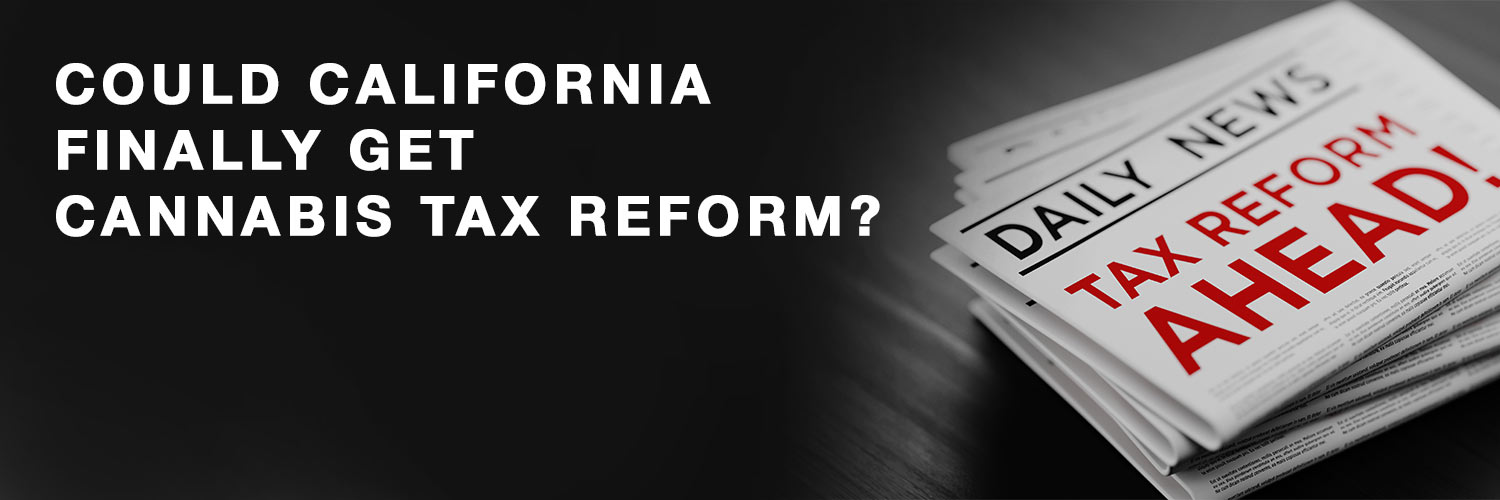Could California Finally Get Cannabis Tax Reform?
In a previous blog we reported that the California Department of Tax and Fee Administration (CDTFA) which oversees the reporting and collection of taxes for the California cannabis industry after conducting an analysis of statewide market data to determine the average mark-up rate between the wholesale cost and the retail selling price of cannabis and cannabis products, is increasing cannabis taxes effective January 1, 2020 by setting the mark-up rate at 80 percent.
Cannabis Excise Tax
The 15 percent cannabis excise tax is based on the average market price of the cannabis or cannabis products sold in a retail sale. The mark-up rate is used when calculating the average market price to determine the cannabis excise tax due in an arm’s length transaction. In an arm’s length transaction, the average market price is the retailer’s wholesale cost of the cannabis or cannabis products plus, the mark-up rate determined by the CDTFA. In a non-arm’s length transaction, the average market price is the cannabis retailer’s gross receipts from the retail sale of the cannabis or cannabis products.
Cannabis Cultivation Tax
As required by the Cannabis Tax Law, effective January 1, 2020, the cultivation tax rates reflect an adjustment for inflation. The adjusted rates for each category shown below will be reflected on the monthly and quarterly cannabis tax returns beginning January 1, 2020.
|
CANNABIS CATEGORY |
CURRENT RATE |
RATE EFFECTIVE 1/1/2020 |
|
Flower per dry-weight ounce |
$9.25 |
$9.65 |
|
Leaves per dry-weight ounce |
$2.75 |
$2.87 |
|
Fresh cannabis plant per ounce |
$1.29 |
$1.35 |
- On or after January 1, 2020, the rates apply to cannabis that a cultivator sells or transfers to a manufacturer or distributor.
- Cultivator cannabis sales or transfers made prior to January 1, 2020, will use the current rate listed above.
- All fresh cannabis plants must be weighed within two hours of harvesting.
If you are a cannabis retailer, you are required to collect the cannabis excise tax from your customers on each retail sale of cannabis or cannabis products starting January 1, 2018, and pay the excise tax to a distributor. Distributors are liable for paying the cannabis taxes to the CDTFA.
How This Impacts The Black Market
Many believe that the CDTFA’s decision to increase taxes on compliant cannabis operators while still mandating compliance with State and local regulations will widen the price disparity gap between cannabis products sold in the black market vs. cannabis products sold in the legal market. But with the State stepping up its enforcement efforts to uncover and prosecute illegal cannabis operators, the State is hoping to eliminate this discrepancy by eradicating non-compliant operators.
How Governor Newsom Is Looking To Reform This Area
We reported in a blog, Assembly Bill 37 signed into law last year by Governor Gavin Newsom that will approve cannabis companies for tax deductions that have otherwise been denied them under IRC Section 280E.
On January 10, 2020, Governor Newsom released California’s proposed budget for 2020-2021, which includes proposals requested by the cannabis industry to streamline the regulatory, licensing, and tax process.
These proposals notably include the following:
- Consolidating the three licensing authorities (BCC, MCSB, CalCannabis Cultivation) into The Department of Cannabis Control by July 2021 with enforcement responsibilities against the regulated and illicit markets.
- Proposing to move responsibility for cultivation tax collection to first distributor only (no final distributor or manufacturer).
- Proposing to move excise tax collection from the distributor to retailer which like sales taxes establishes liability on the “point of sale”.
- Dedicating to work with industry on tax reform and reduction including the number of taxes and tax rates to simplify the system and to support a stronger, safer legal cannabis market.
Click here for the governor’s full 2020-2021 Budget Summary.
What Should You Do?
While the Governor’s support for reform is most welcomed, legislators must still approve of these changes which would not go into effect immediately so you still need to start your cannabis business on the right track under existing law. Protect yourself and your investment by engaging the cannabis tax attorneys at the Law Offices Of Jeffrey B. Kahn, P.C. located in Orange County (Irvine), Los Angeles County and other California locations. We can come up with tax solutions and strategies and protect you and your business and to maximize your net profits. Also, if you are involved in crypto currency, check out what a bitcoin tax attorney can do for you.


